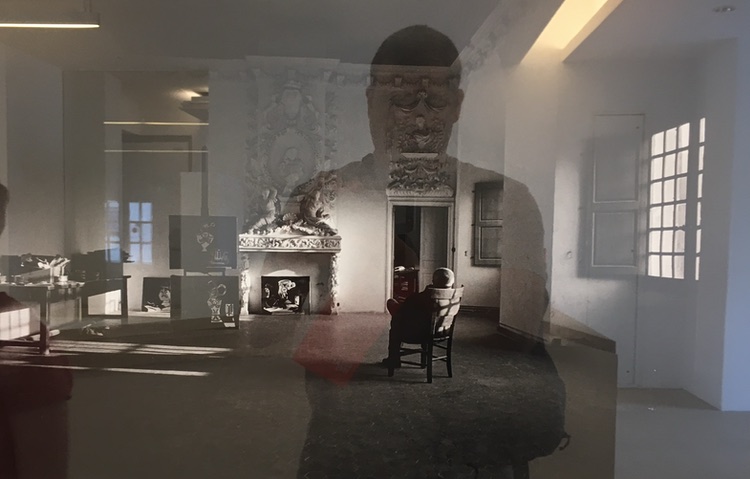The creative journey, writ small, is sometimes (Ira Glass among others) described in six or so steps. They go as follows:
- This is awesome.
- This is tricky.
- This is terrible.
- I am terrible.
- This might be okay.
- This is awesome.
I used to think I wasn’t really a “creative” person; Sure, I would always have agreed that I was creative, in the “good at problem solving” sense… but creative? …you mean like an artist?! Me, nah.
Lately, I’ve come to realize I had things all backwards. If you work on something, and you go through those six (or so) steps while working on anything— Well, that is how you spot creativity in progress. That shows you are a creative. What’s going on, in that cycle of self-doubt enumerated above, is a descent into the dark forest.
Here’s a podcast episode where this gets mentioned in more depth. It’s about creating podcasts, but there’s no techno-mumbo-jumbo. This is all about creativity, beginning to end:
The Dark Forest. That image resonated for me all too strongly. Because when I talked to Jad, I was in the midst of trying to write Out on the Wire, the very book on which the podcast is based, and it was not going well.
~ Jessica Abel, from Episode 7: Dark Forest of the podcast, Out on the Wire
The dark forest is strong imagery. It’s everywhere. Tolkien and countless other fantasy and fiction stories use it. And, why not use it? Good story-telling is timeless.
At the mid-point of the path through life, I found myself lost in a wood so dark, the way ahead was blotted out. The keening sound I still make shows how hard it is to say how harsh and bitter that place felt to me.
~ Dante
I’ve not read any Dante. I know it’s not originally in English; I have to trust the translator. That said, it’s that little “I still make” that knocks my socks off in that passage. That’s such a perspective shift, driven by three words.
Wild animals all live in abject poverty, because they can’t invent any stuff to make it easier. Humans can improve their condition significantly by acquiring objects and knowledge. Anything useful we gain, on top of our basic no-stuff state, can be broadly called wealth. A bearskin is wealth. A sharp obsidian flake is wealth. A log placed across a stream is wealth. Knowing how to make twine is wealth.
~ David Cain, from We are all surrounded by immense wealth
The scales of happiness and gratitude have a tare button. Our hedonistic adaptation jams that tare button every day. Once you understand that it is possible to reset the scales, it’s life altering. Once you understand how to assess your position from zero, then only do you truly have perspective.
You tell me flatly that you are too tired to do anything outside your programme at night. In reply to which I tell you flatly that if your ordinary day’s work is thus exhausting, then the balance of your life is wrong and must be adjusted. A man’s powers ought not to be monopolized by his ordinary day’s work.
~ Arnold Bennett
I often talk about life balance. A decade ago I thought that balancing work and play, or work and leisure—well, I thought life balance was about balancing on the thin edge between a dichotomy (or worse, more than two things.)
That’s not at all how life works. It’s just one journey. It’s also short.
I kept learning effective new things, and successfully incorporating them into my life. They would work for a while, but gradually my brain would invent various excuses to stop doing them consistently, leaving me with plenty of knowledge but far too little accomplishment to show for it.
~ Peter Adeney, from The ultimate life coach
Has the above happened to you? It certainly has happened to me.
No such thing as spare time.
~ Henry Rollins
No such thing as free time.
No such thing as down time.
All you got is life time.
Go.
It’s not just you, and it’s not just me. (I think that’s even a Paul Simon lyric from, The Myth of Fingerprints.)
But each and every single one of these movies at one point or another presented an insurmountable problem and it’s always the same thing: there’s a point where I go, “Oh my God I have no idea how to do this,” or, “I am not good enough.” Somehow at the end of the day doing something that actually resonates with people is quite rewarding and keeps me going.
~ Hans Zimmer, from Hans Zimmer
That “balance” of life… that journey of the creative… that dark forest…
Until next time, thanks for reading.
ɕ
